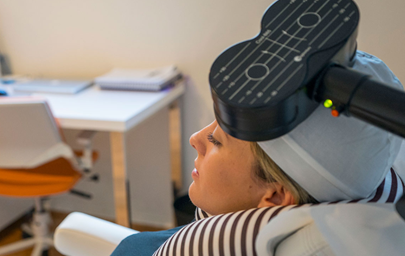
In the ever-evolving landscape of mental health care, innovative treatments are continually emerging, offering new hope for those grappling with conditions like depression. Transcranial Magnetic Stimulation (TMS) has emerged as a groundbreaking therapy, showing promising results in the treatment of various mental health disorders. This article delves into the efficacy of TMS treatment, with a particular focus on its application in managing depression.
The Mechanism behind TMS
TMS is a non-invasive therapeutic technique that involves the use of magnetic fields to stimulate specific areas of the brain. This magnetic stimulation induces electrical currents in targeted regions, influencing neural activity. The procedure is painless and does not require sedation, making it a viable option for individuals seeking alternatives to traditional treatments.
TMS Treatment for Depression: A Paradigm Shift
Traditionally, depression has been treated with medications and psychotherapy. However, not all individuals respond to these conventional approaches. TMS treatment for depression represents a paradigm shift in mental health care, offering a non-pharmacological option for those resistant to or intolerant of antidepressant medications.
Clinical Studies and Research Findings
Numerous clinical studies and research endeavors have explored the effectiveness of TMS treatment for depression. The results have been encouraging, with a significant number of patients experiencing improvements in mood and a reduction in depressive symptoms. The non-systemic nature of TMS minimises side effects commonly associated with medications, making it an appealing option for many.
Targeted Stimulation and Neural Connectivity
One of the key factors contributing to the efficacy of TMS in depression management is its ability to target specific regions of the brain associated with mood regulation. By modulating neural connectivity in these areas, TMS treatment aims to alleviate symptoms of depression and promote a more balanced emotional state.
Session Duration and Frequency
A typical TMS treatment session is relatively short, lasting around 20 to 30 minutes. Patients typically undergo daily sessions for several weeks, with the exact duration and frequency varying based on the treatment protocol prescribed by the healthcare provider. The non-invasive nature of the procedure allows individuals to resume their daily activities immediately following a session.
TMS as an Adjunctive Therapy
In addition to being a standalone treatment for depression, TMS is increasingly recognised as an adjunctive therapy. It may be used in conjunction with medications and psychotherapy to enhance overall treatment outcomes. This versatility makes TMS a valuable tool in the comprehensive approach to managing depression.
Conclusion:
As we explore the efficacy of TMS treatment in mental health care, particularly in the context of depression, it becomes evident that this innovative therapy holds significant promise. The non-invasive nature, targeted stimulation, and positive research findings position TMS as a valuable option for individuals seeking effective and well-tolerated treatments for their mental health challenges. As ongoing research continues to shed light on its mechanisms and applications, TMS treatment stands as a beacon of hope in the realm of modern mental health care.